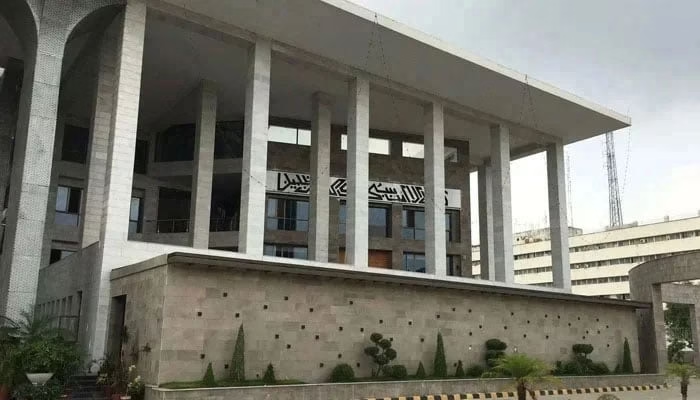In a significant development in the high-profile Sector E-11 land embezzlement case involving the National Accountability Bureau (NAB), the Islamabad High Court (IHC) has issued a fresh order pertaining to the reassignment of the judicial bench overseeing the matter. The order, issued by Justice Mohsin Akhtar Kayani and Justice Saman Rafaat Imtiaz, has directed that the case be returned to the original bench comprising Justice Mohsin Akhtar Kayani and Justice Sardar Ijaz Ishaq Khan.
According to court documents, this decision follows several weeks of procedural confusion and changes in the judicial roster that impacted the continuity of the case. The Sector E-11 land misappropriation case has drawn public and legal scrutiny due to the allegations of significant land irregularities under NAB’s purview.
Background of the Bench Changes
Initially, the case was being heard by a division bench of Justice Mohsin Akhtar Kayani and Justice Sardar Ijaz Ishaq Khan. However, due to the unavailability of this bench, the cause list for April 28 was canceled. A new hearing date was then set for May 22 before the same bench.
Unexpectedly, on April 28, a revised judicial roster was issued under the directions of the Acting Chief Justice of the IHC. This new roster excluded the original bench and instead assigned Justice Saman Rafaat Imtiaz to sit alongside Justice Mohsin Akhtar Kayani, effectively altering the composition of the bench hearing the case.
Subsequently, a miscellaneous petition filed in the E-11 case appeared before the newly formed bench on May 8. During proceedings, the legal counsel representing the petitioner pointed out that the matter had already been previously heard by the Justice Kayani–Justice Ijaz Ishaq bench, and urged the court to maintain consistency by referring the case back to the same judges.
Court’s Order to Restore Original Bench
Taking into account the lawyer’s arguments and the procedural history of the case, the bench of Justice Mohsin Akhtar Kayani and Justice Saman Rafaat Imtiaz issued an order instructing that the case be re-assigned to the earlier bench, comprising Justice Kayani and Justice Ijaz Ishaq.
The decision to revert to the original bench appears to be guided by the principle of judicial consistency and the importance of ensuring continuity in complex legal matters that have already been partially heard by a particular set of judges.
New Roster Without Original Bench Raises Questions
Interestingly, despite this directive, the latest weekly roster of judges — issued following the court’s order — does not include the division bench of Justice Mohsin Akhtar Kayani and Justice Sardar Ijaz Ishaq Khan. This has raised further questions about whether the case will proceed without interruption or face additional delays due to administrative reshuffling.
Legal observers note that frequent changes in benches and judicial rosters — particularly in cases involving powerful institutions like NAB — can potentially undermine public confidence in judicial transparency and affect the timely resolution of sensitive matters.
Implications and Legal Significance
The Sector E-11 case is being closely watched, not just for its allegations of land embezzlement and administrative mismanagement, but also for its broader implications on accountability and the role of anti-corruption bodies like NAB in Pakistan.
The court’s latest move to restore the original bench may be seen as an attempt to reinforce procedural integrity and avoid the perception of any undue influence or manipulation in the legal process. By recognizing the prior involvement of a specific bench and its familiarity with the case, the IHC seems to be signaling its commitment to upholding judicial fairness and consistency.
What Happens Next?
While the order for reassignment has been issued, much depends on whether the judicial roster is updated again to reflect the bench change. Legal sources suggest that the case may either proceed under a special directive from the Acting Chief Justice, or a new roster may be issued in the coming days to accommodate the court’s order.
Until then, the fate of the high-stakes E-11 land misappropriation case — and the legal trajectory of NAB’s accountability efforts — remains in a state of watchful anticipation.



